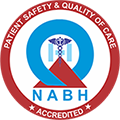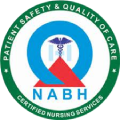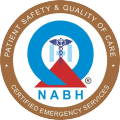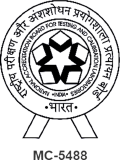At Daya General Hospital, we understand the discomfort and challenges caused by piles. Located in Thrissur, Kerala, our specialized team provides advanced and personalized care to help you regain comfort and confidence. Our piles specialists are here to guide you through every step of your treatment journey.
Highlights:
- Advanced, painless treatment options
- Experienced piles specialists in Thrissur
- State-of-the-art diagnostic and surgical facilities
- Personalized care plans tailored to your needs
- Convenient location in Thrissur, Kerala
What Are Piles?
Piles, also known as hemorrhoids, are swollen veins in the rectum or anus. Common symptoms include bleeding, itching, and discomfort during bowel movements. Factors such as chronic constipation, pregnancy, and a sedentary lifestyle can increase the risk.
FAQs:
1. What are the early signs of piles?
Piles, also known as hemorrhoids, are swollen veins in the anus and lower rectum. Early signs of piles include:
- Rectal Bleeding
- Bright red blood in the stool, on toilet paper, or in the toilet bowl after a bowel movement.
- Itching or Irritation
- Persistent itching or discomfort around the anus.
- Pain or Discomfort
- A feeling of soreness or mild pain during or after bowel movements.
- Lump Near the Anus
- A small, tender lump near the anus, which might be a prolapsed hemorrhoid.
- Swelling
- Swelling or a feeling of fullness in the rectal area.
- Mucus Discharge
- Mucus-like discharge after a bowel movement.
- Difficulty Sitting
- Discomfort or pain while sitting for extended periods.
If you or someone you know experiences these symptoms, it’s advisable to consult a healthcare professional for proper evaluation and management. Early treatment and lifestyle changes can help prevent worsening of the condition.
2. How can I prevent piles?
- Eat a High-Fiber Diet
- Include fruits, vegetables, whole grains, and legumes.
- Fiber softens stool and prevents constipation, reducing the strain during bowel movements.
- Stay Hydrated
- Drink plenty of water (8–10 glasses a day) to help keep stools soft.
- Avoid excessive caffeine and alcohol, which can dehydrate you.
- Exercise Regularly
- Engage in moderate activities like walking, swimming, or yoga to promote bowel movements and improve circulation.
- Avoid prolonged sitting, which can increase pressure in the rectal area.
- Avoid Straining
- Don’t strain or hold your breath during bowel movements, as this increases pressure on the veins in the rectum.
- Establish Regular Bowel Habits
- Go to the toilet as soon as you feel the urge to avoid hard stools.
- Avoid sitting on the toilet for too long, as it can strain the anal area.
- Maintain a Healthy Weight
- Excess weight increases pressure on the pelvic and rectal veins.
- Practice Good Hygiene
- Keep the anal area clean and dry.
- Use gentle, unscented wipes or moist toilet paper to avoid irritation.
- Manage Chronic Conditions
- Address chronic cough or constipation promptly to reduce strain on the rectal veins.
By following these measures, you can significantly reduce your risk of developing piles. If symptoms persist or worsen, consult a healthcare professional for advice and treatment.
3. What is the recovery time after piles surgery?
1 to 7 days depending upon the type of surgery.
4. Whether all patient with piles require treatment? When will they need surgery?
Piles is not a deadly disease. In early stage it produces some inconvenience like bleeding, mild pain which can be treated conservatively. A small percentage of patient with persistent bleeding, severe pain, prolapse, infection etc.. require surgical treatment surgical treatment.
Treatment Options at Daya General Hospital:
Our expert team provides a range of treatment options, from non-surgical approaches to advanced minimally invasive procedures. Whether you need medication, lifestyle counseling, or surgical intervention, our piles specialists in Thrissur are equipped to provide the best care.
- Rubber band ligation
- Sclerotherapy
- Open, Laparoscopic, Laser Hemorrhoidectomy
- Stapled Hemorrhoidectomy







